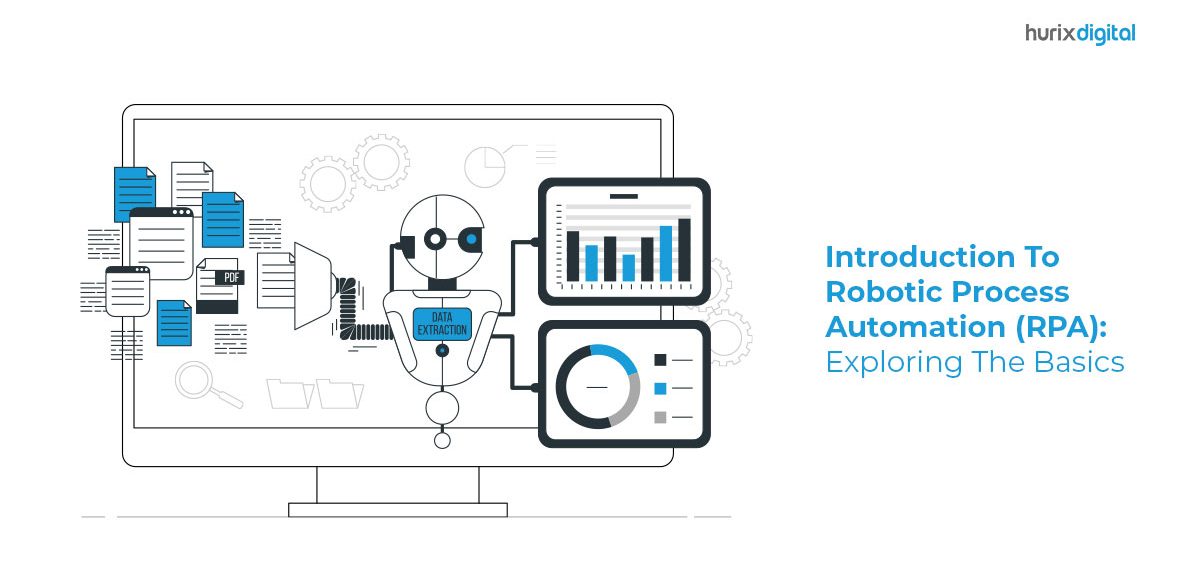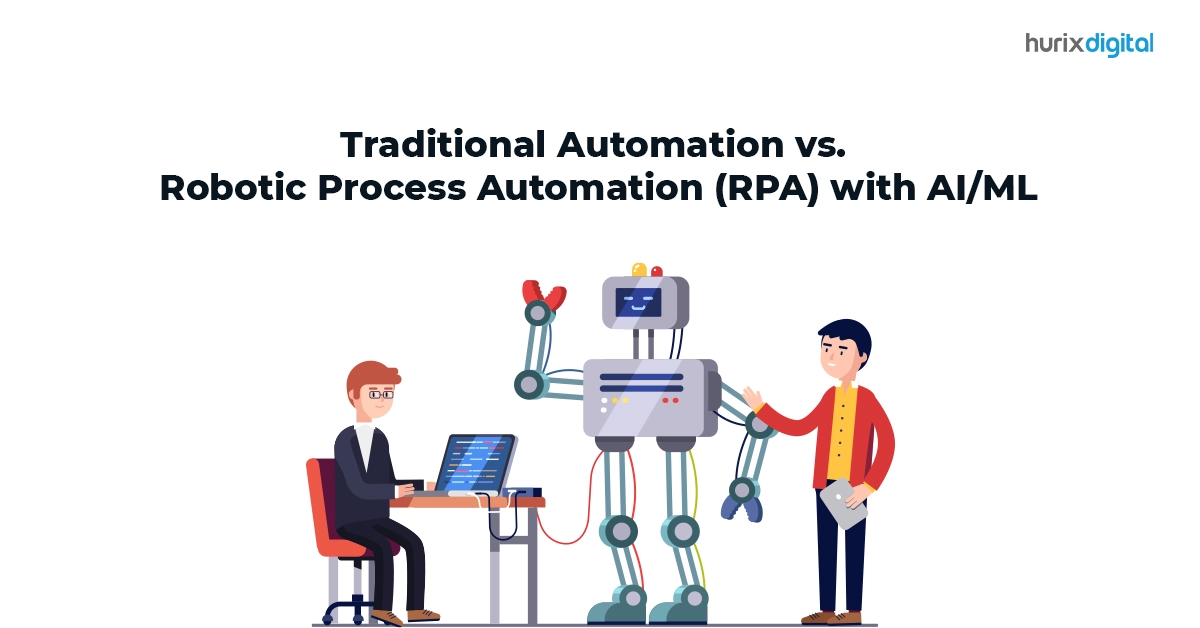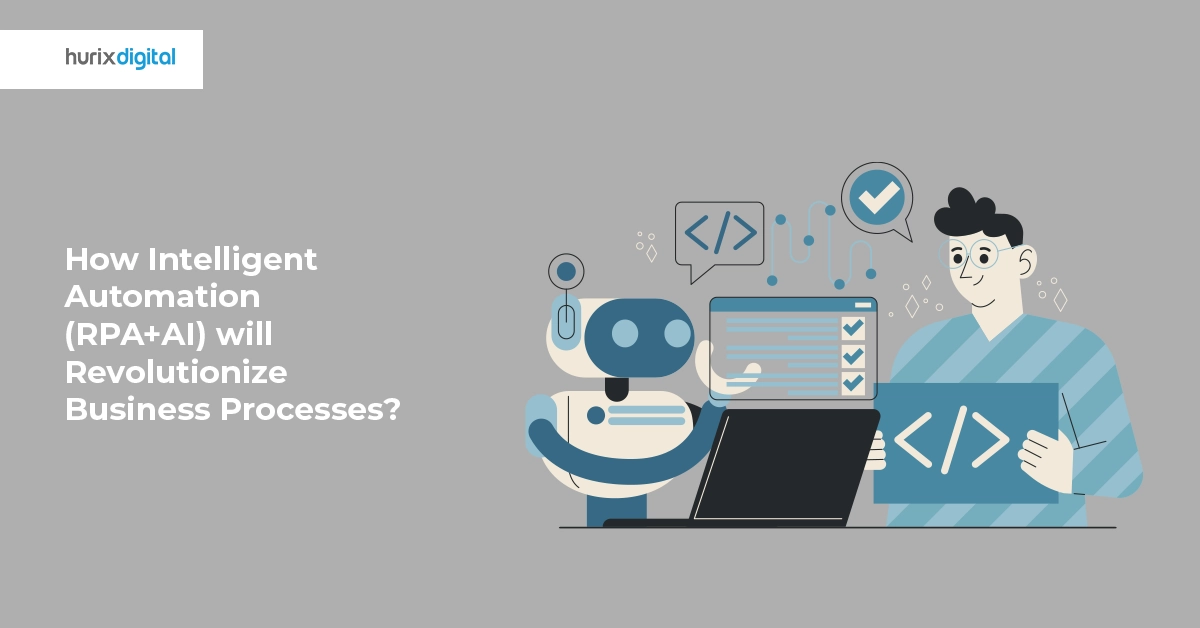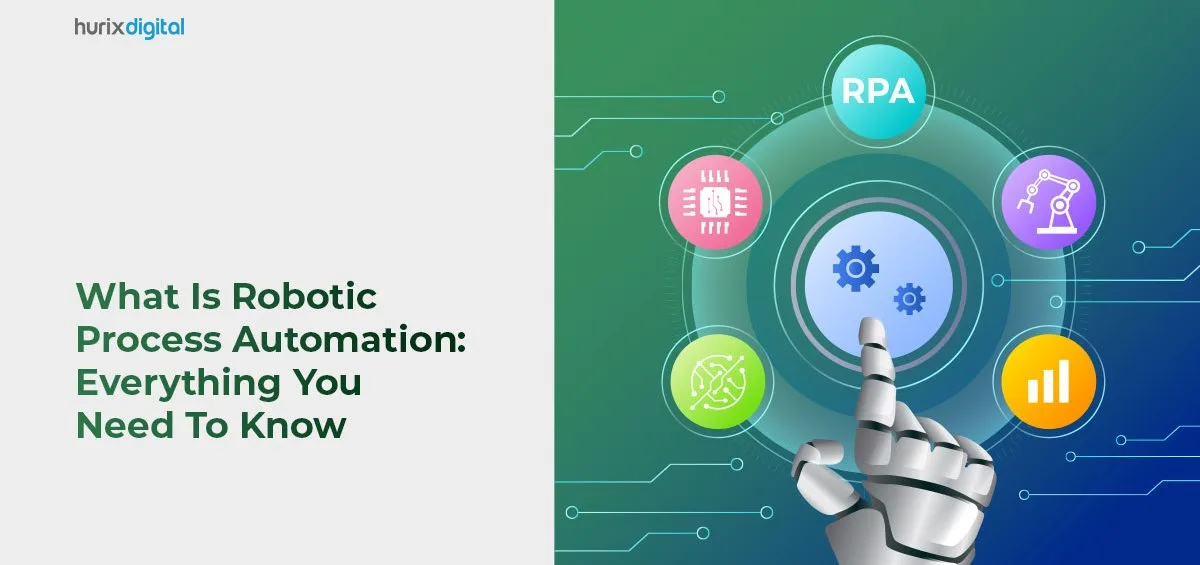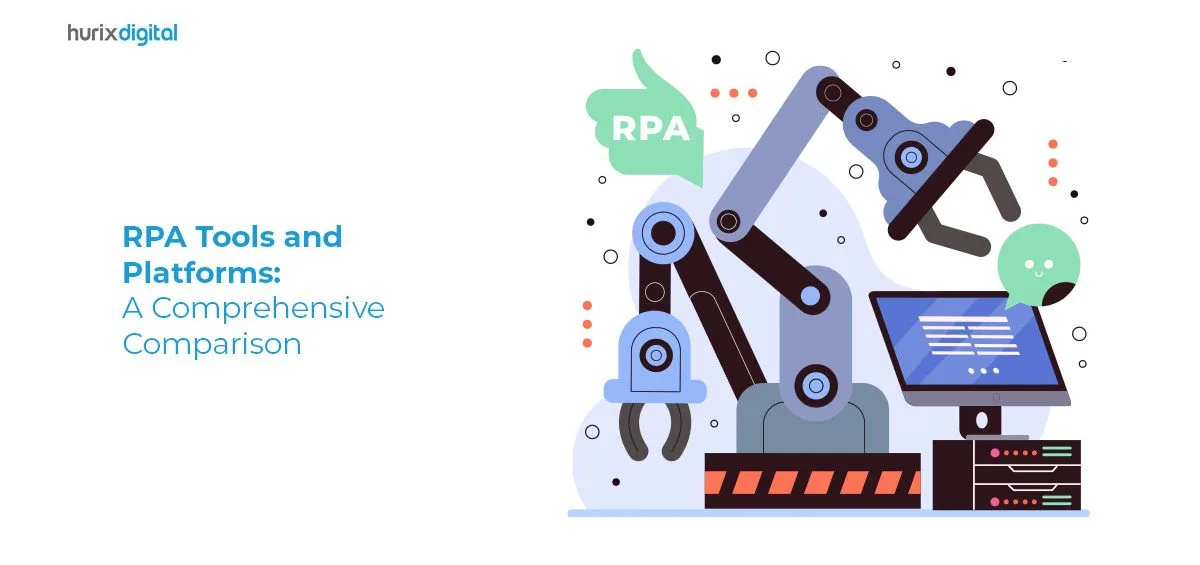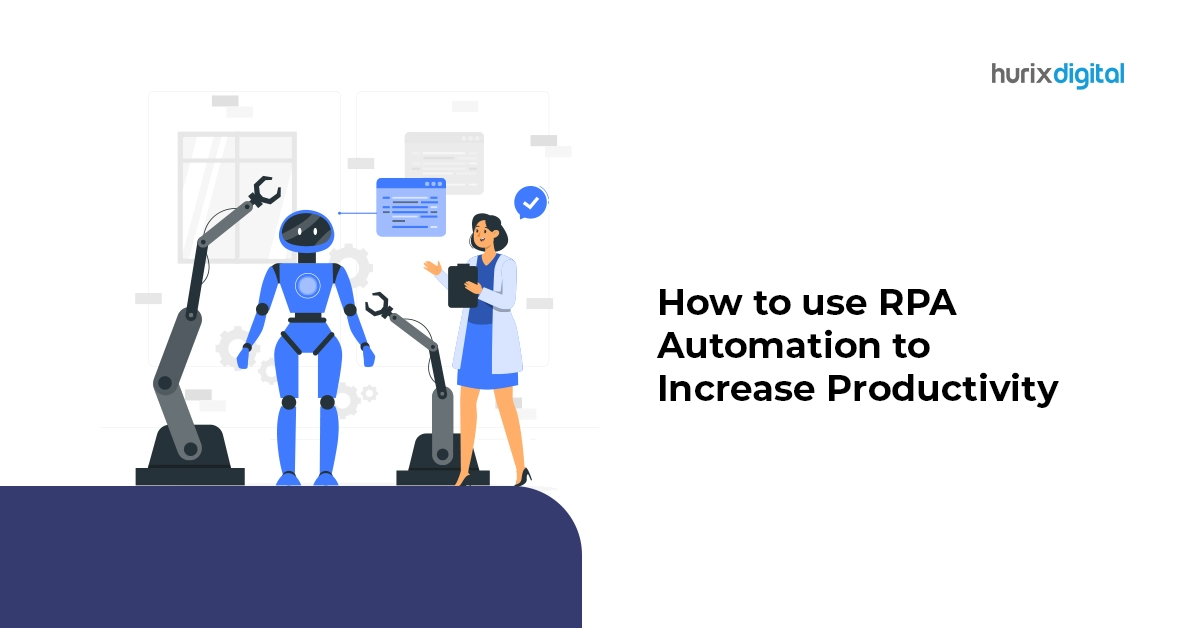Summary
This post provides a brief introduction to the basics of robotic process automation. It explains the concept of robotic process automation, the advantages of using RPA tools, and the applications of RPA technology across various industries.
Did you know that robotic process automation can yield tangible benefits to organizations within as less as 12 months from implementation? If data from a Deloitte report is to be believed, RPA automation has proven its weight in hard numbers:
- 78% of respondents are already implementing RPA.
- 16% of respondents have plans to implement RPA shortly.
Another Deloitte report highlights even more interesting statistical data points:
- RPA helped organizations achieve a cost reduction of 32% (average) in the year 2021.
- RPA helped organizations achieve a revenue boost of 24% (average) in 2021.
There is tremendous latent potential to be achieved through implementing RPA software implementation in organizations.
Let’s dig down into the basics of process automation using modern technological tools that make achieving higher efficiencies possible.
Table of Contents:
- What is RPA Automation?
- What are the Advantages of RPA Software?
- RPA Technology Applications Across Various Industries
- Important Features of RPA Tools
- Conclusion
What is RPA Automation?
RPA automation is a technological tool that enables organizations to automate all or part of their processes, workflows, tasks, and techniques with a view to:
- Streamlining the operations.
- Improving efficiencies.
- Reduce manual interventions.
- Improve accuracy.
Using RPA software, organizations can design intelligent robots to undertake tasks that involve information processing, data extraction, system navigation, workflow process management, business process management, and much more.
Businesses can automate tasks by delegating them to RPA tools, such as booking tickets, generating and tallying invoices, or performing security checks. Their operations and intervention can be customized and controlled, making them reliable tools for streamlining business workflows.
What are the Advantages of RPA Software?
Robotic process automation tools provide seven major advantages to businesses that are both tangible and intangible:
1. Improved Speed and Productivity
RPA tools help businesses automate repetitive tasks and apply rule-based operations for high-volume work. All these factors combine to deliver accelerated task completion without human intervention.
The human workforce can dedicate more time to mission-critical tasks, improving productivity.
2. Increase in ROI
As a consequence of improved productivity and accelerated task completion, a business can positively impact its ROI.
This is done by enabling better processes for cost management and saving a significant amount of time that would otherwise be wasted on repetitive processes.
3. Elimination of Human Error
Where there are humans involved in a task, there will be errors. No manner of undivided attention can help a professional complete a task error-free.
However, that is not the case with RPA tools that run purely on mathematical algorithms, helping businesses eliminate errors from processes.
4. Improved Compliance
Every organization has a set of policies and regulations that all the processes and operations are required to adhere to.
Automation of compliance checks using RPA software enables businesses to better reinforce their policies directly at the touchpoint.
5. Employee Satisfaction
Repetitive tasks such as data entry are the most time-consuming activities in which employees invest a lot of time.
By automating these tasks, your organization can improve levels of employee satisfaction by removing this responsibility from their task lists.
6. Reduction in Operating Costs
Implementing robotic process automation software is a one-time investment that lasts for years.
Business process automation eliminates the need for the workforce to be hired for the job. This enables businesses to lower their operating costs considerably.
Also Read: Top 6 Ways to Improve Efficiency with RPA in Higher Education
7. Enhanced Decision-Making
RPA tools provide C-suite professionals with handy analytical data and insights that enable them to deliver better decisions.
Data-backed strategies help with business growth in the long term and also work to improve the overall customer experience.
RPA Technology Applications Across Various Industries
Five major industries are making extensive use of RPA technology to improve their workflow process management:
1. Finance and Banking
The financial services and banking sector has extensive utility for RPA software. The major aspects that this technology helps businesses in this industry are:
- Automating data validation.
- Creating reports.
- Processing loan claims.
- Updating loan data.
Managing customer accounts.
2. Retail Industry
The digital retail industry sees a heavy amount of customer traffic which necessitates the automation of several aspects to improve business process management:
- Updating online inventory.
- Importing email sales.
- Keeping the product information updated across all channels.
- Updating production data from manufacturers.
3. Healthcare Industry
One of the most important applications of RPA technology is to enable healthcare establishments to automate several patient-centric services for a seamless treatment experience:
- Processing patient data and migrations.
- Processing the medical bills.
- Processing insurance claims.
- Storage and organization of patient records.
4. Manufacturing Industry
Manufacturing operations, when working at larger scales, can achieve high efficiencies and accuracy with RPA technology implementation at the facility:
- Automating logistics data.
- Comparing product pricing.
- ERP automation.
- Automating data monitoring across various IoT systems and equipment.
5. Communications Industry
Robotic process automation tools have delivered great advantages to the telecommunications industry in the following forms:
- Creating backups of client information systems.
- Data uploading.
- Collection and consolidation of phone data.
- Generating analytics for competitor pricing and product demand and comparison.
Important Features of RPA Tools
Every process automation tool has essential features that make it powerful. Listed below are some of these common features:
1. Analytics
Every RPA tool comes equipped with an extensive analytical suite that helps you keep track of the performance of each robot under operation.
The data thus collated helps you understand the overall performance of your organization.
2. Security Suite
RPA software also comes equipped with a full-fledged security suite that lets you customize authorization and access controls. You can set permissions and conditions for data access that help you improve data administration.
3. Simple UI
Robotic process automation software essentially has a simple interface that lets you customize your bots for various processes and workflows. You can easily navigate to the Task Editor features and edit or customize your bots for specific purposes.
4. Exception Handling
While every process has a predetermined workflow, sometimes exceptions do occur. A good RPA tool enables the creation of rules that let you prescribe protocols for handling such exceptions automatically.
5. Integration Options
The most important feature that a process automation tool can provide a business is the capability to integrate with existing systems seamlessly. You will typically find readily available plugins or features that let you integrate and connect everything.
Also Read: How RPAs are used for Business Automation?
Conclusion
RPA automation has revolutionized the operational dynamics of organizations across the globe. Businesses can dedicate their strategies to growth and development without distractions by improving accuracy and enabling a more productive environment.
To that end, Hurix Digital enables organizations to empower their digital learning platforms with powerful automation and creativity tools that improve learning and retention in their trainees. There are more interesting details on the website about Hurix Digital’s smart solutions for businesses – check it out.


